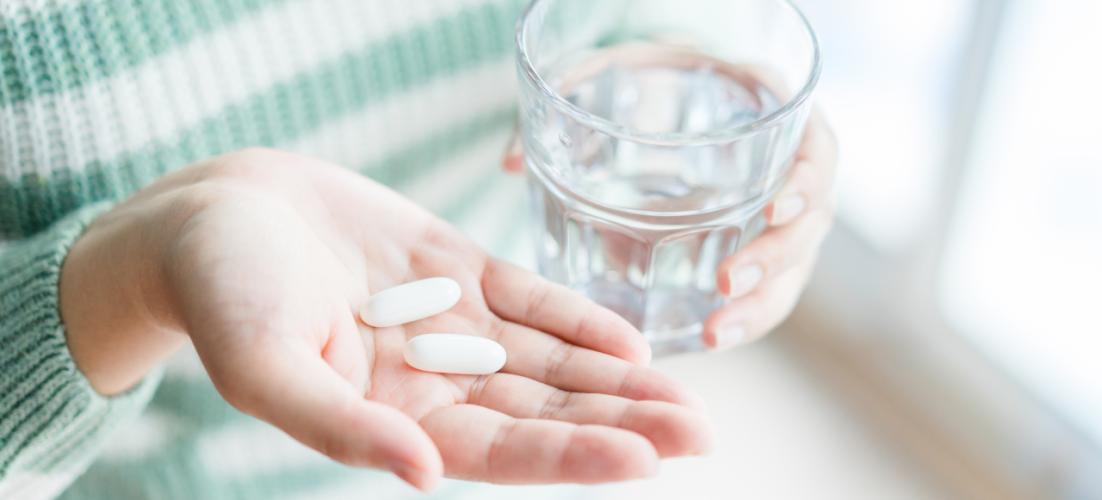Paracetamol restrictions worth considering
TRANSCRIPT - Dr Nick Yim, ABC Southern Drive

Transcript: AMA Queensland Vice President, Dr Nick Yim, ABC Radio, Southern Drive with Annie Gaffney, Friday 16 September 2022
Subject: Potential changes to paracetamol availability
ANNIE GAFFNEY: In a new report, the Therapeutic Goods Administration is recommending changing public access to paracetamol. The TGA is recommending that the package size is reduced and introducing an age restriction to the common pain killer because of the rates of overdose on the drug. The report found the highest rate of intentional overdose on the over-the-counter medicine is highest in young adolescent women and girls. Hervey Bay GP, Dr Nick Yim, is Vice President of the AMA Queensland. Nick, great to have you back with us. How serious is an overdose on paracetamol?
DR NICK YIM: Good afternoon, Annie, and good afternoon everyone. And it's always a pleasure to be with you. An overdose of paracetamol – Panadol - can be quite serious. The majority of time, if they're treated in time, the survival rates are excellent, but obviously we need to get that in the window of two to six hours when they have that overdose.
ANNIE GAFFNEY: So, what does it do to your body taking too much paracetamol?
DR NICK YIM: To put it in a simplistic form, without the antidote, the person will go into liver failure and ultimately die. So, obviously it's not a pleasant death. It's quite painful, quite distressing, and obviously it's not treating the root cause of the problem, which is mental health in our society. And there's been a lot of talk about that over the past many months and years.
ANNIE GAFFNEY: How concerning is this report by the TGA on higher rates of intentional overdoses in young women and girls?
DR NICK YIM: I think with the higher rates of intentional overdose, that's a reflection of what many of society is going through and obviously the challenges of access to mental health, access to psychologists, psychiatrists, and doctors. And that's the root cause of the issue. The TGA report definitely is valid and at the AMA, we are very supportive of this consultation. In our society and access to paracetamol, we do need to make a few changes.
ANNIE GAFFNEY: In many other countries, my understanding is that paracetamol is fairly uncommon because of the risk of overdose. Why is it so available in Australia by comparison?
DR NICK YIM: Historically paracetamol has been thought as a benign medication that has relatively few side-effects. In Australia we have easy access, we can access paracetamol in our local supermarket, Coles, Woolworths, and obviously at pharmacies. And one of the big challenges is, is when someone goes to a supermarket, a Coles or Woolworths, there's actually no restriction of how many packets you can get, so obviously people can intentionally overdose, or out of impulse, and that's where overdoses can occur.
ANNIE GAFFNEY: Is a replacement - using aspirin or ibuprofen - a good substitute for paracetamol if you are in pain?
DR NICK YIM: Paracetamol is still a very good pain killer. At the same time, aspirin does help, although it does have other side effects such as gastrointestinal upset, stomach pain, ulcers, and it can interact with other medications. I think the key thing is limiting packet sizes, especially where there's no intervention from a healthcare professional. So, that's something maybe a pharmacist or a GP, someone that can give advice to you so we can take the history from the root cause of the issues, what is causing that pain, and at the same time screen for any underlying mental health issues.
ANNIE GAFFNEY: Paracetamol is one of the three non-opioids and non-steroidal anti-inflammatory medicines on the World Health Organization's list of essential medicines, and that's along with aspirin or ibuprofen. Should the overdose risk preclude it from being on that list?
DR NICK YIM: In my opinion, it should be accessible, but at the same time we do need to have regulations in place to limit supply. We don't want people going to Coles or Woolworths and essentially buying four or five boxes, especially children or people who are not over the age of 18, because anyone below the age of 18 can actually go into a Coles and Woolworths and purchase a box.
ANNIE GAFFNEY: So, it sounds like to me, generally you're in agreement with the kind of restrictions that the TGA is suggesting?
DR NICK YIM: Yeah, we're definitely supportive of the consultation. And I think restricting sales without a prescription, so such as Coles and Woolworths, to only over-18, I think it will protect children and teenagers.
ANNIE GAFFNEY: Nick, great to get your thoughts on this issue. Thanks so much.